Rye flour is actually one of the most nutritious grains. This flour is made from rye. Rye is a robust, nutritious grain that people have consumed for millennia.
You might wonder, if there are other options available in the market, then why is rye flour famous? What are the health benefits? Is it gluten-free? Is there any substitute for rye flour?
Wheat and other cereals are easily available in the local market. Still, this cereal grain is definitely worth testing. That’s why we are here to enlighten you with all kinds of information about rye flour. Let’s begin to explore.
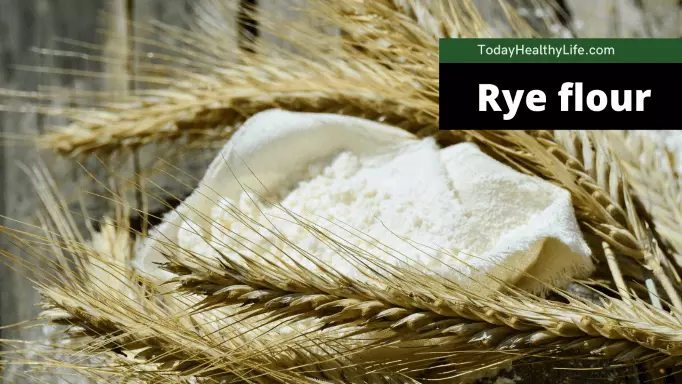
Table of Contents
What is rye flour?
Rye flour, also known as Secale cereale, is a grain that is similar to wheat and rice. Flour, bread, alcohol, several liquors, and other products are also from rye grain. It also can be taken whole, as cooked rye berries or as rolled oats.
Due to the sheer core purpose of rye flour, with endosperm, which is basically the outer hull of the rye berry or kernel. It is the main reason behind its nutritional values.
During milling, it is difficult to discern the germ and bran out from the endosperm. And that is why rye flour contains extra nutrients and vitamins.
Rye was generally cultivated in Turkey and was unexplored in most of Europe until the post-Roman era. Yet, for many Europeans, it has increasingly become an essential dish. It happened because of its ability to thrive in colder climates and infertile soils.
Russia and Poland continue to be the world’s leading manufacturers of rye grain. Natural rye is now getting cultivated in several countries. Finland, Lithuania, and North Dakota in the United States are on the list.
Germany is also known for its large variety of bread and bread-making methods. One of their favorite types of bread is rye (Schwarz rot). Rye bread is also well praised in Denmark.
Also read: What is wheat starch: benefits, substitute, is it gluten-free & more.
Glutinous rice flour: nutrition, is it gluten free? substitute, & all.
Dark rye flour
Dark rye flour might vary depending on where it came from. It often gets processed from the complete rye kernel, including the bran, germ, and endosperm. And it is produced in whole grain rye flour. A few black rye flours, on the other hand, have portions of the bran separated or have minimal endosperm.
The difference between dark rye flour and light rye flour is the color. Dark rye flour is greige because it has flecks of bran and germ in it.
Light rye is similar to white flour. Whereas dark rye is comparable to whole grain flour. So, when you bake bread with dark rye flour, it will look like a smaller loaf than light rye flour bread.
Also read: What is millet flour– is it gluten free, nutrition, substitute & all.
Is rye flour gluten free?
Rye flour is not gluten-free, so do not expect it to be.
Secalin, a kind of gluten protein, can be found in rye. People who are on a gluten-free diet can’t eat wheat, barley, and rye flour. Because it contains gluten, it causes celiac sufferers to develop an immune reaction.
Eliminate goods that have the terms rye on the label. However, rye itself is not gluten-free, so anything based on rye flour is bad for you.
Whether you have a gluten sensitivity or are just maintaining a gluten-free diet, you should remove any bread or snacks that include rye flour.
Also read: Is rye bread gluten free?
– Marble Rye Bread: Nutrition, How To Make, Healthy? & More.
– Is corn starch gluten free? Why do females eat it, & more.
Nutritional value of rye flour
Rye flour is rich in nutrition. It is high in protein and fiber. The nutritional profile of rye flour is pretty impressive. It has a prominent amount of iron, calcium, zinc, vitamins B, and vitamin E.
However, the number of nutrients depends on how much rye flour you are using. Also, darker and lighter rye flours contain different nutrients. So it may vary from person to person.
The following is the average component of rye flour (100g):
• Protein: 8.9gram
• Carbs: 61.8gram
• Fat: 1.7gram
Rye flour contains 298 calories per 100 grams.
Regrettably, when processed to “light rye” and blended with wheat flour. The finished product bread may not be good enough to compete with wheat whole grain bread.
Also read: Rye Bread Calories, Nutrition & Does it make you fat?
Nutritional value of dark rye flour
Dark rye bread is the best in terms of nutritional values.
In general, one cup (128grams) of dark rye flour (the healthiest type) for one serving include the following nutrients:
• Calorie count: 416
• Carbs: 88grams
• Protein content: 20.4grams
• Fat: 3grams
• Fiber: 30.4grams
• Phosphorus: 639 milligrams (64 percent DV)
• Magnesium: 205 milligrams (51 percent DV)
• Zinc: 6.5 milligrams (43 percent DV)
• Iron content: 6.4 milligrams (36 percent DV)
• Vitamin B6: 0.6 milligrams (28 percent DV)
• Thiamine: 0.4 milligrams (27 percent DV)
• Niacin: 5.5 milligrams (27 percent DV)
• Potassium: 918 milligrams (26 percent DV)
• Riboflavin: 0.3 milligrams (19 percent DV)
• Folate: 76.8 micrograms (19 percent DV)
• Pantothenic acid: 1.6 milligrams (19 percent DV)
• Vitamin E: 3.5 milligrams (11.7 percent DV)
• Vitamin K: 7.6 micrograms (9 percent DV)
Quite fascinating, right?
Potential health benefits
Here are a few examples of the health benefits of eating rye flour. Let’s take a look.
1. Weight loss and cholesterol reduction: In terms of metabolism, rye flour can be beneficial. When rye flour gets digested, it varies wheat in a good way. And it has been found to reduce body weight growth.
Whole-grain rye can improve insulin sensitivity and reduce overall cholesterol levels in the blood.
2. Boost your heart health: According to studies, rye flour helps to decrease risk factors for cardiovascular disease.
3. Controlling Glucose: Rye flour can also aid in blood glucose control and improvement. Researchers from Sweden discovered that whole grain rye products help in normalizing glycemic levels. So does bran rye bread, and endosperm rye flours. Particularly sourdough rye bread.
It also maintains insulin levels and improves insulin sensitivity.
4. Inflammation: A 12-week diet of rye flour was conducted. The patients with insulin resistance had better insulin reactions after eating it. Moreover, it reduced inflammatory processes.
This decrease in inflammation in metabolic syndrome may also help to lower the risk of diabetes.
5. Fights Cancer: The anti-cancer benefits of whole-grain rye flour are numerous. High levels of insoluble and soluble polyphenols, saponins, phytates, complex carbohydrates, and proteolytic enzymes help in preventing cancers from growing.
The phytonutrients help to fight and prevent cancer and reduce the risk of heart disease and menopause symptoms.
Rye flour substitute
Rye flour has a stronger, nuttier flavor than wheat flour. It also has a thicker mouthfeel that can withstand the heaviest of sandwiches.
A few people, meanwhile, dislike the harsh flavor of rye or are gluten intolerant. So, if you are looking for substitute rye flour. Here are some suggestions.
Spelt flour
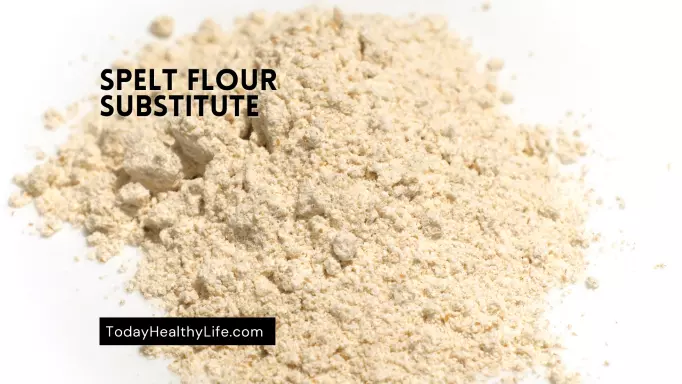
Spelt flour is getting produced from the classic grain spelt. Because it is a substitute for rye, it has a lot in common. Spelt flour was once famous in southern Europe, but it has fallen out of favor as refined wheat flour has become more widely available. Because of its adequate nutrients, protein, and antioxidant value, health experts have reintroduced it as a delicacy.
It has gritty, harsh aromas. Spelt flour can be a good substitute for rye flour. But not for those people who have gluten sensitivity.
Rice Flour
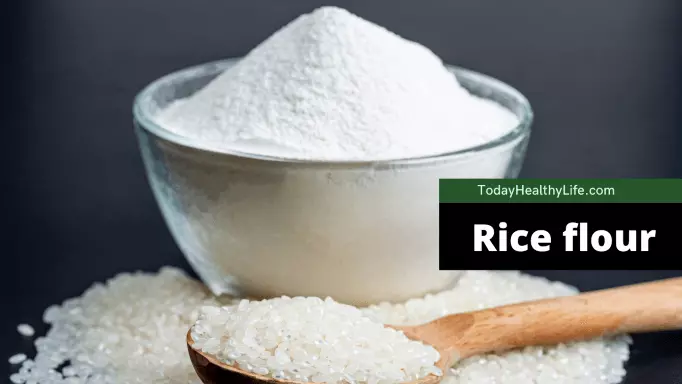
Rice flour is a widely available grain product. It gets exposure first in East Asia, where this is a common grain. Rice flour comes in several varieties, but brown rice flour, with its extensive selection qualities, is the most similar to rye flour.
Rice flour’s consistency is not as strong as wheat flour, so your dish will be crunchy and sticky. It’s also less dried than rye flour. You won’t get that distinct rye flavor.
Wheat Flour
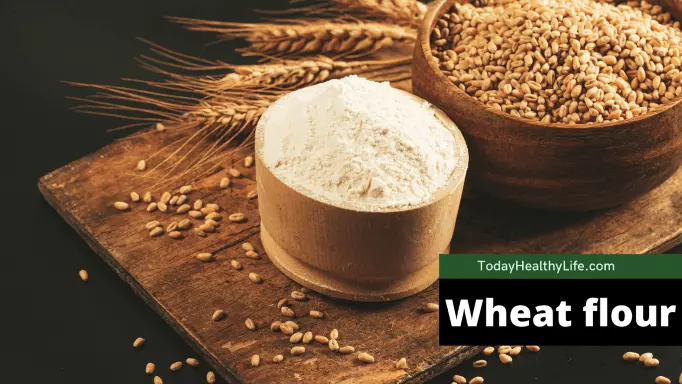
Wheat flour gets used in baking. It works well in a variety of recipes and has a mellow taste that doesn’t dominate other flavors. You can replace rye flour with wheat flour while making bread.
Wheat flour is simpler to come by than rye flour. But you will lose some of the nutrients and distinguish taste by choosing it.
Buckwheat flour
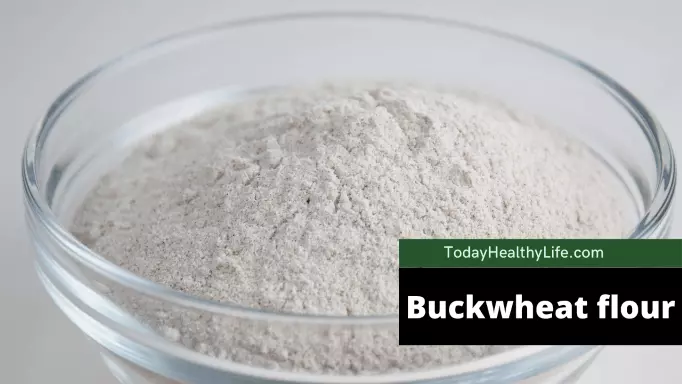
Buckwheat is a seed, not wheat. People in Japan use it to make soba noodles, and France uses it to make the savory crepe batter.
It is gluten-free and has a somewhat harsh flavor and a comparable nutritional profile to rye flour. As buckwheat flour doesn’t quite fit in bread recipes, you have to blend it with another flour.
Oat flour
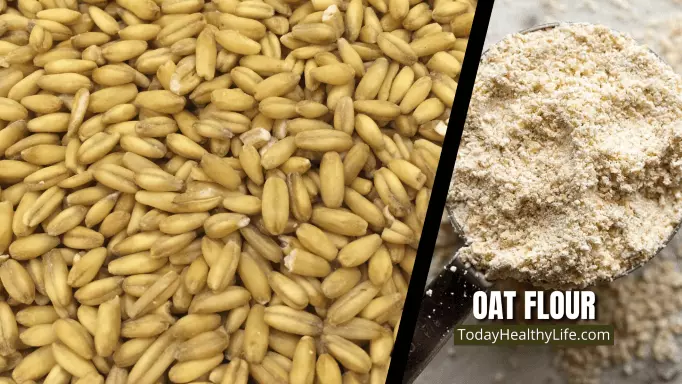
You can replace rye flour with oat flour. With oat flours, you can make baked goods or cookies. Oat flour resembles rye flour when it comes to nutritional values. You will get calories, proteins, vitamins B1, and mineral salts.
Though it contains gluten, people with gluten intolerance can’t eat oat flour.
Also read: Oat flour substitute, nutrition, calories, gluten free, healthy, & all.
What is tapioca flour– tapioca flour substitute, Is tapioca flour keto? & more.
Where to use rye flour
Rye flour is versatile, and you can use it in a variety of items. People are more familiar with rye bread, but it has all kinds of different rye bread.
You can make pancakes, blennies, muffins, and drop scones with rye flour. Also, you replace it with wheat flour if you want a lighter product, or blend it with half wheat flour.
Using rye flour, you can make your handmade crackers. Rye is making a return and this time in the form of beer. Big brewers and amateur brewers are creating innovative beers with rye as the primary grain.
Side effects of rye flour
Although there is less gluten in rye flour goods than in wheat flour items, it is still present.
If you’re attempting to ignore gluten or suspect you might just have gluten resistance symptoms, or you are dealing with celiac symptoms. You definitely have to be careful of taking any form of rye flour.
The bottom line is rye flour is a great option for your healthy life. It is a good alternative to your regular wheat flour. It has a lot of health benefits such as weight reduction, glucose balance, enhanced heart, and digestion health because it includes higher fiber and nutrients.
What not? You can easily add rye flour to your diet in the place of wheat.
